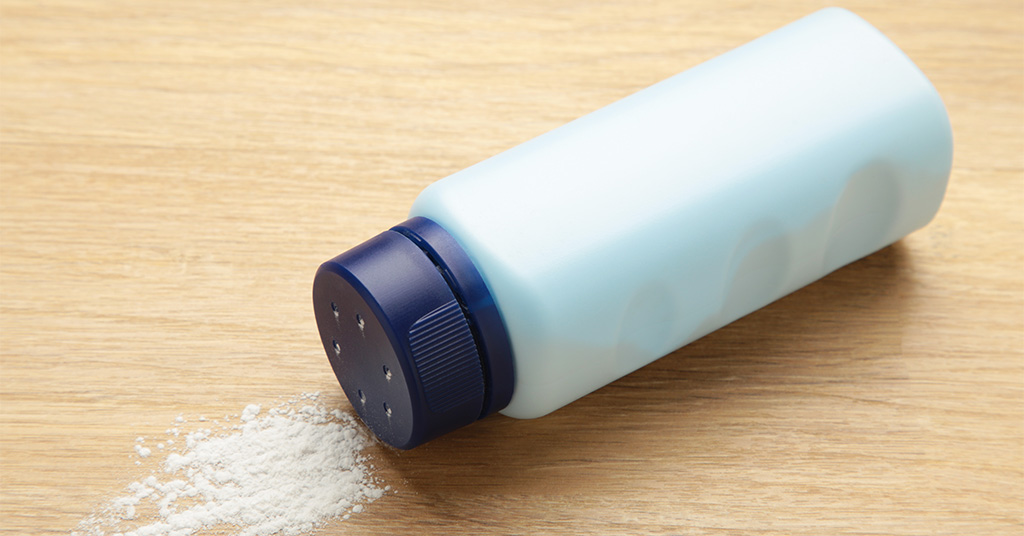Talcum Powder recalls and lawsuits in 2023

05 Dec 2023
The potential health risks associated with talc-based powders have been making headlines for years.
Thousands of lawsuits have been filed against big brands like Johnson & Johnson. Large pay-outs have been awarded as the potential health risks were confirmed.
These lawsuits also led to widespread recalls of talcum powder products in the US and Canada.
In this article, we look at the latest updates on talcum powder recalls and lawsuits in the US and consider if this is a problem in South Africa.
Talcum powder and cancer risks
Talc is a mineral that is found alongside asbestos in the earth. If not properly processed, there’s a risk that asbestos can still be present in the final talcum powder product.
Asbestos is toxic and has been strongly linked to many health problems, including cancer. Long-term users of talcum powder have developed a type of cancer specifically caused by asbestos (mesothelioma cancer).
In one of the many lawsuits against talcum powder manufacturer Johnson & Johnson, it was revealed that the company knew there was asbestos in its talc as early as the 1950s. It also knew the health risks it posed to users.
Is South African baby powder a risk?
Despite large-scale recalls in the US and Canada, Johnson & Johnson talc-based powders can still be bought in South Africa. Thus far, Johnson & Johnson has not committed to a date to recall talc-based baby powder in South Africa.
A spokesman has said, “Due to capacity constraints at this time, our corn-starch-based powder offering is not expected to be available in South Africa in 2023. Consumers can continue to purchase talc-based Johnson’s Baby Powder until product supply runs out.”
In 2022, the Purity Essentials talc-based baby powder was recalled by manufacturer Tiger Brands after it detected traces of asbestos in test samples. It called the recall a “precautionary measure and in the best interests of consumer safety”.
Notable updates on the talcum powder lawsuits in 2023
Johnson & Johnson attempted to file for bankruptcy for its talc subsidiary in the face of thousands of lawsuits. The attempt was rejected in early 2023 by a federal appeals court. This cleared the way for nearly 40,000 talc lawsuits to return to the US civil court system.
In April 2023, as part of these bankruptcy proceedings, Johnson & Johnson offered US$8.9 billion to settle the outstanding cases. Plaintiffs rejected this offer.
In May 2023, the US bankruptcy judge overseeing Johnson & Johnson’s bankruptcy attempts ordered all parties to return to mediated settlement discussions. This has temporarily halted all litigation in existing cases.
Despite this, cases continue to be added. As of October 2023, there are more than 50,000 talcum powder lawsuits pending against Johnson & Johnson.
Johnson & Johnson is reportedly considering a third attempt to use bankruptcy as a means to settle these lawsuits.
One US district judge said he doesn’t expect any cases to be tried until next year. “It appears that the earliest the parties will be prepared to proceed to a bellwether trial will be either late 2024 or early 2025,” he said.
Other successful talcum powder lawsuits
In 2020, Johnson & Johnson agreed to pay more than US$100 million to settle more than 1,000 talc lawsuits simultaneously.
In 2019, Johnson & Johnson was ordered to pay US$325 million to Donna Olson, who claimed Johnson & Johnson talcum powder had caused her mesothelioma.
In 2018, Johnson & Johnson was ordered to pay US$25.7 million to Joanne Anderson, who developed mesothelioma after using its talcum powder.
How you are protected in South Africa?
South Africans are protected from defective or harmful products by the Consumer Protection Act No 68 of 2006 (CPA) which came into effect on 31 March 2011. This applies to all goods that are sold in South Africa, no matter where they’re manufactured.
If a product causes harm to a consumer, the producer, importer, distributor or retailer can be found liable.
For a successful product liability case, a claimant must prove that:
- an unsafe product was supplied
- the product had a defect or hazard
- inadequate instructions or warnings were supplied.
DSC Attorneys is a specialist personal injury law firm in Cape Town. It deals with cases related to faulty products and manufacturer liability.
If you have a potential claim due to a faulty product, contact 0861 465 879. DSC Attorneys work on a “no-win, no-fee” basis.
See also:
- Johnson and Johnson no longer selling talcum powder
- Commission initiates investigation against Johnson & Johnson (Pty) Ltd and Janssen Pharmaceutica (Pty) Ltd
- Can I make a personal injury claim for food poisoning?
- Wrongful death

